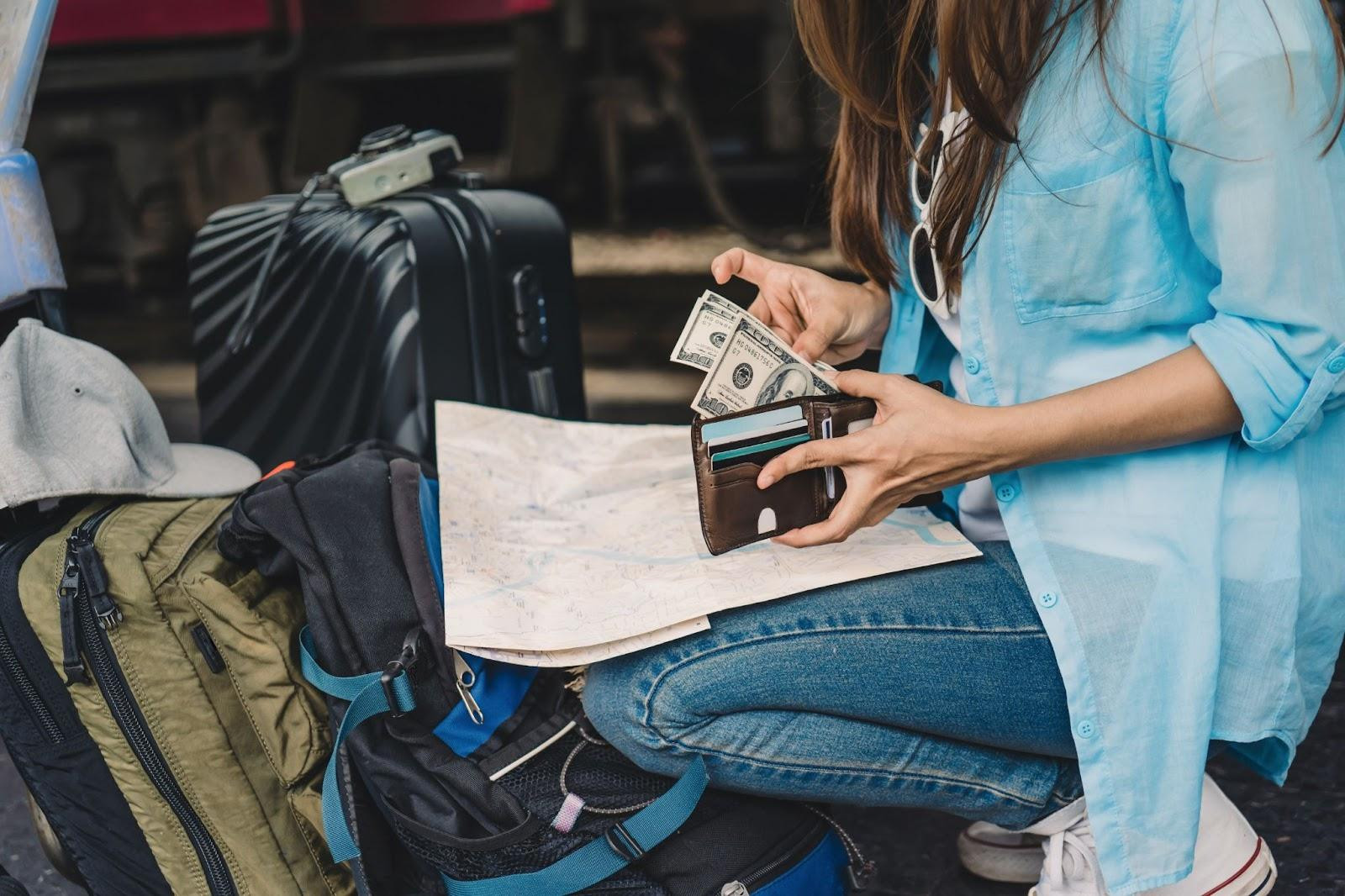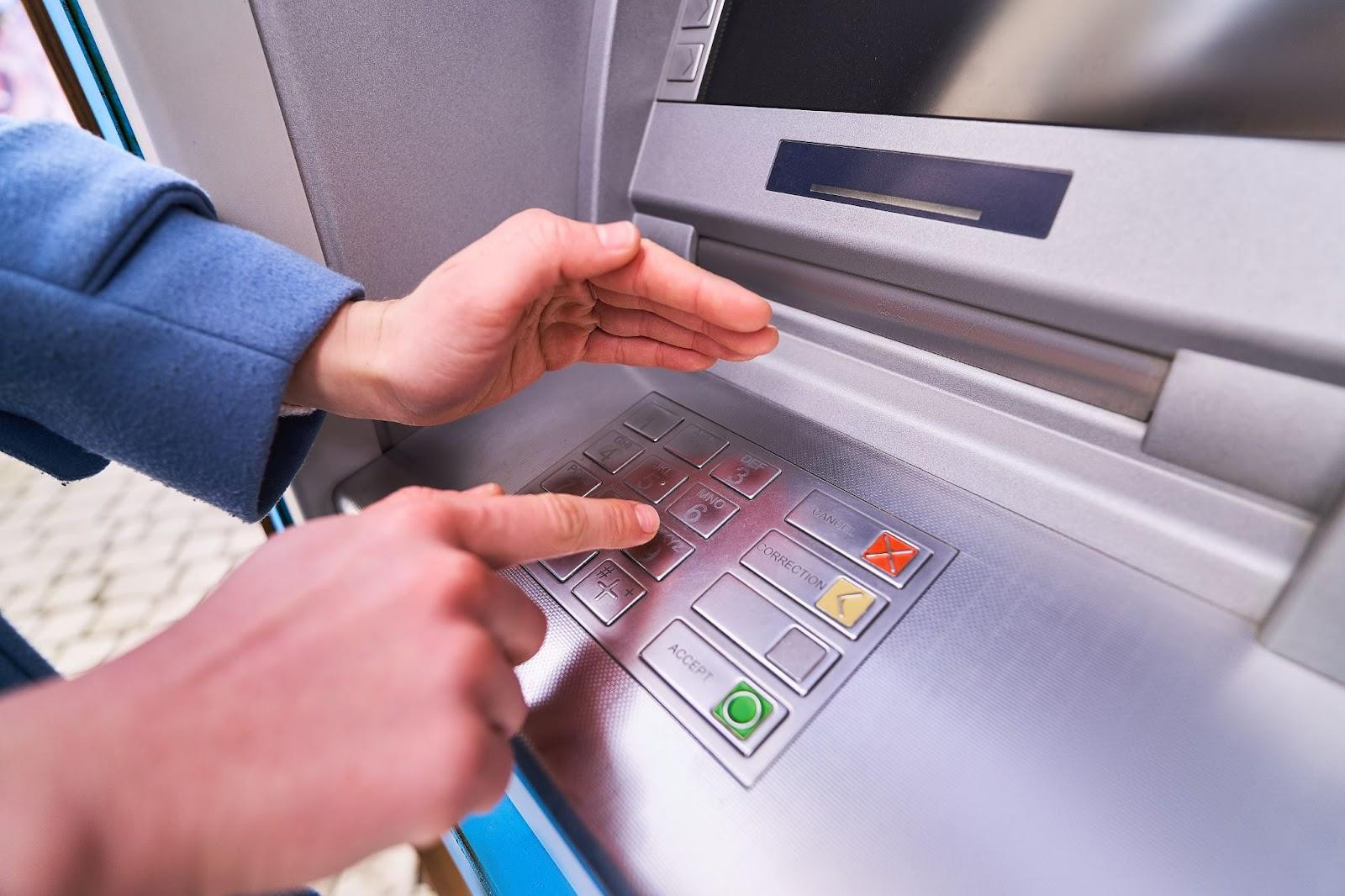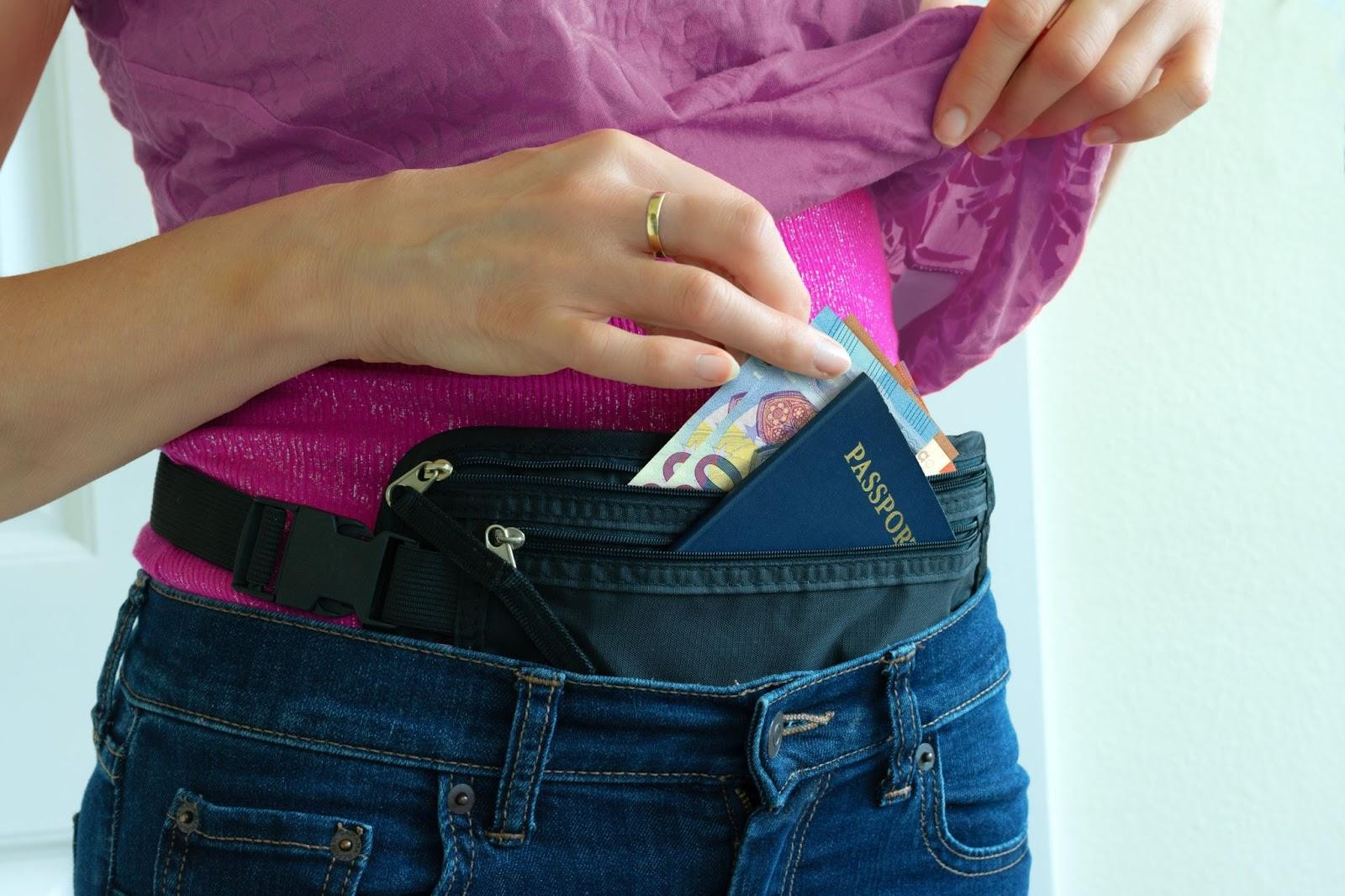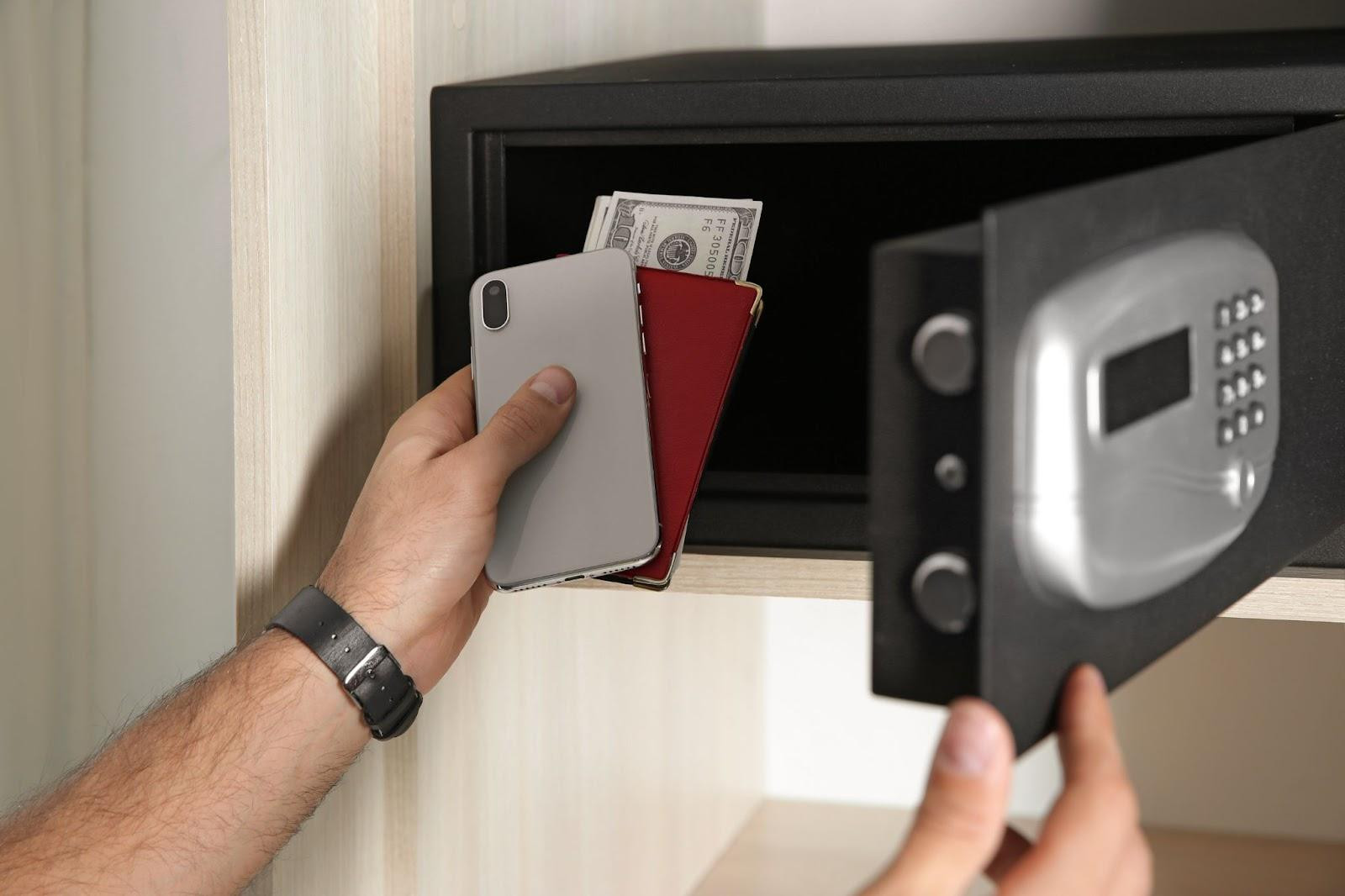Traveling with a significant amount of cash, especially when exploring destinations like Vietnam, requires careful planning and execution. SIXT.VN understands the nuances of international travel and offers tailored solutions to ensure your journey is secure and enjoyable. By employing strategic methods for handling your funds, you can mitigate risks and fully embrace your travel experience. Explore Vietnam worry-free with our reliable tips and services, designed to enhance your peace of mind.
1. Why Is Traveling With Cash A Concern?
Traveling with a lot of cash can be concerning due to potential theft, loss, and safety risks.
Carrying a large sum of cash can make you a target for thieves, especially in tourist hotspots. According to statistics from the Vietnam National Administration of Tourism, petty theft targeting tourists has increased by 15% in major cities over the past year. Additionally, there’s always the risk of accidentally losing your money or having it damaged. Moreover, some countries have strict regulations on the amount of cash you can bring in or take out, which could lead to legal complications if you’re not careful. Therefore, it’s essential to take precautions and consider alternative payment methods to minimize these risks.
 Traveler checks cash in wallet before a trip
Traveler checks cash in wallet before a trip
2. What Are The Key Intentions When Carrying A Lot of Cash?
The key intentions when carrying a lot of cash include security, convenience, avoiding fees, and preparedness for emergencies.
Many travelers carry cash because they believe it offers greater control and security compared to relying solely on cards. It’s also a practical choice in destinations where card payments are not widely accepted. Additionally, using cash helps avoid foreign transaction fees and fluctuating exchange rates associated with card usage. Furthermore, having cash on hand ensures you’re prepared for unforeseen circumstances, such as power outages or system failures that may disrupt electronic payment systems. SIXT.VN recognizes these intentions and provides services that balance the convenience of cash with the security of digital transactions, ensuring a seamless travel experience.
3. How To Minimize Risks When Traveling With Cash?
Minimizing risks when traveling with cash involves strategic planning, secure storage, and heightened awareness.
3.1. Pre-Trip Planning
3.1.1. Notify Your Bank
Notifying your bank about your travel plans prevents your cards from being blocked due to unusual activity and ensures smooth transactions abroad. According to a survey by the American Bankers Association, 60% of travelers who informed their bank about their travel plans experienced uninterrupted card usage. Providing your bank with your travel dates and destinations allows them to monitor your account for fraudulent activity while ensuring your legitimate transactions are approved. This simple step can save you from potential embarrassment and financial disruptions during your trip.
3.1.2. Research Local Laws
Researching local laws regarding currency declaration ensures you comply with regulations and avoid potential legal issues when entering or exiting a country. For example, in Vietnam, travelers are required to declare amounts exceeding USD 5,000 upon arrival. Familiarizing yourself with these rules helps you prepare the necessary documentation and avoid penalties or confiscation of your funds. SIXT.VN advises travelers to consult the official customs website of their destination country to stay informed about current regulations.
3.1.3. Plan Your Budget
Planning your budget helps you determine how much cash you need, reducing the temptation to carry excessive amounts and minimizing potential risks. By estimating your daily expenses and allocating funds for specific activities, you can avoid overspending and ensure you have enough cash without carrying unnecessary sums. Tools like budget tracking apps and travel expense calculators can assist in creating a detailed itinerary and managing your finances effectively. This proactive approach enhances your financial security and provides peace of mind throughout your journey.
3.2. Secure Storage Solutions
3.2.1. Money Belts
Money belts offer a discreet and secure way to carry cash, keeping it hidden from potential thieves and providing peace of mind during your travels. These belts are designed to be worn under your clothing, making it difficult for pickpockets to access your funds. Look for money belts with RFID-blocking technology to protect against electronic theft of your credit card information. According to travel security experts, money belts are an essential accessory for travelers concerned about financial security.
3.2.2. Diversify Storage
Diversifying your cash storage by splitting it into multiple locations minimizes the impact of theft or loss and ensures you always have access to funds. Instead of keeping all your cash in one wallet, distribute it between a money belt, a hidden pocket, and a secure pouch. This way, if one storage location is compromised, you still have backup funds available. This strategy is particularly useful in crowded tourist areas where pickpocketing is common.
3.2.3. Anti-Theft Bags
Anti-theft bags provide enhanced security features such as slash-resistant materials, locking zippers, and hidden compartments to protect your cash and valuables from theft. These bags are designed to deter pickpockets and prevent unauthorized access to your belongings. Features like RFID-blocking pockets add an extra layer of security by preventing electronic skimming of your credit cards. Investing in an anti-theft bag is a smart way to safeguard your valuables while traveling, offering both convenience and peace of mind.
 Person dials and hides with other hand for security purposes a PIN code on the keyboard of atm bank to withdraw travel cash
Person dials and hides with other hand for security purposes a PIN code on the keyboard of atm bank to withdraw travel cash
3.3. On-The-Go Awareness
3.3.1. Avoid Displaying Cash
Avoiding the display of cash in public reduces your visibility as a target for thieves and minimizes the risk of attracting unwanted attention. When making transactions, discreetly access your cash and avoid flashing large sums of money. Use smaller denominations whenever possible to reduce the need to expose larger bills. By being mindful of your surroundings and keeping your cash concealed, you can significantly decrease your vulnerability to theft.
3.3.2. Be Mindful Of ATMs
Being mindful of ATMs by using machines in secure locations and covering the keypad protects your PIN and prevents skimming or surveillance. Choose ATMs located inside banks or well-lit, public areas to minimize the risk of tampering. Always cover the keypad with your hand when entering your PIN to prevent shoulder surfing or camera surveillance. Regularly check your account statements for any unauthorized transactions.
3.3.3. Trust Your Instincts
Trusting your instincts and avoiding suspicious situations helps you steer clear of scams and potential threats, ensuring your safety and security. If something feels off or too good to be true, it’s best to err on the side of caution and remove yourself from the situation. Be wary of strangers who approach you with unsolicited offers or requests, and avoid isolated or poorly lit areas, especially at night. Your intuition is a valuable tool in assessing risks and making informed decisions.
4. How Can SIXT.VN Help With Safe Travel Planning?
SIXT.VN enhances your travel safety and convenience through a range of services tailored to your needs, ensuring a seamless and secure experience.
4.1. Secure Airport Transfers
Secure airport transfers with SIXT.VN ensure you arrive at your destination safely and without the risk of being targeted by scams or theft upon arrival. Our professional drivers are vetted and trained to provide reliable and secure transportation, giving you peace of mind from the moment you land. Booking your airport transfer in advance eliminates the need to negotiate with potentially unreliable taxi drivers, reducing the risk of overcharging or unsafe practices.
4.2. Pre-Booked Accommodations
Pre-booked accommodations through SIXT.VN provide a secure and reliable base for your travels, ensuring you have a safe place to store your valuables and rest without worry. We partner with reputable hotels and guesthouses that prioritize security and guest safety. Booking in advance also allows you to read reviews and compare amenities, ensuring you choose accommodations that meet your specific needs and preferences. This proactive approach minimizes the risk of ending up in unsafe or unreliable lodging.
4.3. Guided Tours
Guided tours with SIXT.VN offer a safe and informative way to explore your destination, providing local insights and protection from potential scams or unsafe areas. Our experienced guides are knowledgeable about the local culture, customs, and safety precautions, ensuring you have a memorable and secure experience. They can also help you navigate crowded tourist areas and avoid common pitfalls that can lead to theft or other issues. With a guided tour, you can relax and enjoy your surroundings without constantly worrying about your safety.
 Woman travelling with cash getting cash Euros and passport from hidden travel money belt she has under her clothes to protect herself from pickpocket thieves
Woman travelling with cash getting cash Euros and passport from hidden travel money belt she has under her clothes to protect herself from pickpocket thieves
5. What Alternative Payment Methods Can Be Used?
Alternative payment methods such as credit cards, debit cards, prepaid travel cards, and mobile payment apps offer convenient and secure alternatives to carrying large amounts of cash.
5.1. Credit Cards
Credit cards provide a convenient and secure way to pay for goods and services while traveling, offering fraud protection and the ability to track your expenses. Many credit cards also offer travel rewards and benefits, such as points or miles that can be redeemed for future travel expenses. However, it’s essential to be aware of foreign transaction fees and currency conversion rates, which can add to the cost of your purchases. Notifying your credit card company of your travel plans can prevent your card from being blocked due to unusual activity.
5.2. Debit Cards
Debit cards allow you to access your bank account directly, providing a convenient way to withdraw cash from ATMs and make purchases. Unlike credit cards, debit cards do not incur interest charges, but they may have daily withdrawal limits and transaction fees. It’s important to check with your bank about international ATM fees and currency conversion rates before you travel. Also, be cautious when using your debit card at unfamiliar ATMs, as they may be vulnerable to skimming devices.
5.3. Prepaid Travel Cards
Prepaid travel cards offer a secure and convenient way to manage your travel expenses, allowing you to load funds onto the card before your trip and use it like a debit card. These cards are typically reloadable and can be used at ATMs and merchants worldwide. They also provide protection against theft or loss, as you can only spend the amount loaded onto the card. Prepaid travel cards can be a good option for budgeting and avoiding overspending while traveling.
5.4. Mobile Payment Apps
Mobile payment apps like PayPal, Apple Pay, and Google Pay allow you to make contactless payments using your smartphone or tablet, providing a convenient and secure alternative to cash. These apps use encryption and tokenization to protect your financial information, reducing the risk of fraud or identity theft. Mobile payment apps may be accepted at a growing number of merchants, but it’s essential to check for compatibility before relying on them as your primary payment method.
6. What To Do If You Lose Your Cash?
Losing your cash can be stressful, but taking immediate action and having a backup plan can help minimize the impact and ensure you can continue your travels.
6.1. Report The Loss
Reporting the loss to local authorities and your bank or credit card company is crucial for documentation purposes and potential fraud protection. Filing a police report provides official documentation of the incident, which may be required for insurance claims or reimbursement. Contacting your bank or credit card company allows them to cancel your cards and prevent unauthorized transactions. Be sure to keep copies of all reports and communication for your records.
6.2. Contact Your Embassy
Contacting your embassy or consulate can provide assistance with obtaining emergency funds, replacing lost documents, and navigating local laws and regulations. Your embassy can also provide referrals to legal or medical services if needed. They can help you communicate with local authorities and ensure your rights are protected. In some cases, the embassy may be able to provide a temporary passport or travel document to allow you to continue your journey.
6.3. Use Your Backup Plan
Using your backup plan, whether it’s emergency cash, a credit card, or assistance from family or friends, ensures you have resources to continue your travels and cover essential expenses. Access your emergency funds stored in a separate location or contact your bank to arrange for a wire transfer. If you have a credit card, use it for essential purchases and track your spending carefully. Don’t hesitate to reach out to family or friends for financial assistance if needed.
7. Common Scams To Be Aware Of?
Being aware of common scams targeting tourists helps you avoid falling victim to fraud and protects your cash and valuables.
7.1. Fake Police
Fake police scams involve individuals posing as law enforcement officers who approach tourists and demand to see their identification and cash. These scammers may use intimidation tactics or fabricated accusations to pressure you into handing over your money. Always ask to see official identification and verify their credentials before complying with their demands. If you have any doubts, insist on going to the nearest police station to resolve the issue.
7.2. Overpriced Taxis
Overpriced taxis are a common scam in many tourist destinations, where drivers inflate fares or take longer routes to charge unsuspecting passengers more money. Always negotiate the fare before getting into the taxi or insist on using the meter. Use reputable taxi companies or ride-sharing services whenever possible to ensure fair pricing. Be wary of drivers who offer unsolicited rides or refuse to use the meter.
7.3. Friendship Bracelet
Friendship bracelet scams involve individuals who approach tourists and offer to tie a friendship bracelet around their wrist, then demand payment for the bracelet. These scammers may become aggressive or intimidating if you refuse to pay. Politely decline the offer and avoid engaging with them. If someone tries to tie a bracelet on you without permission, firmly remove it and walk away.
 Man putting smartphone, passport and travel money into steel safe, closeup
Man putting smartphone, passport and travel money into steel safe, closeup
8. Legal Limits For Carrying Cash?
Understanding the legal limits for carrying cash across borders helps you comply with regulations and avoid potential penalties or confiscation of funds.
8.1. Declaring Currency
Declaring currency when required by law ensures you comply with customs regulations and avoid potential legal issues when entering or exiting a country. Many countries have limits on the amount of cash you can carry without declaring it to customs officials. Failure to declare currency exceeding the limit may result in fines, confiscation of funds, or even criminal charges. Always research the currency declaration requirements of your destination country before you travel.
8.2. Consequences Of Not Declaring
The consequences of not declaring currency when required can be severe, including fines, confiscation of funds, and potential criminal charges. Customs officials may seize undeclared funds and initiate legal proceedings against you. In some cases, you may be detained or deported. It’s essential to comply with currency declaration requirements to avoid these risks.
8.3. Researching Limits
Researching the legal limits for carrying cash across borders is crucial for ensuring compliance with regulations and avoiding potential penalties. Consult the official customs website of your destination country for information on currency declaration requirements. You can also contact the embassy or consulate of your destination country for clarification. Be sure to understand the limits for both entering and exiting the country.
9. How Does Local Culture Impact Cash Handling?
Local culture can significantly impact cash handling, influencing tipping customs, bargaining practices, and general attitudes toward money.
9.1. Tipping Customs
Tipping customs vary widely around the world, and understanding local practices is essential for avoiding misunderstandings or offense. In some countries, tipping is expected in restaurants, hotels, and other service establishments, while in others it may be considered unnecessary or even insulting. Research the tipping customs of your destination country before you travel and adjust your behavior accordingly.
9.2. Bargaining
Bargaining is a common practice in many cultures, particularly in markets and bazaars. Learning how to bargain effectively can help you get better prices and avoid overpaying for goods and services. Start by offering a lower price than you’re willing to pay and be prepared to negotiate. Be respectful and friendly, and remember that bargaining is often seen as a social interaction rather than a confrontational one.
9.3. General Attitudes
General attitudes toward money can vary significantly between cultures, influencing how people handle cash, make purchases, and view wealth. In some cultures, frugality and saving are highly valued, while in others, spending and generosity are more prevalent. Observing and adapting to local attitudes toward money can help you integrate more smoothly into the culture and avoid misunderstandings.
10. How To Handle Exchange Rates?
Handling exchange rates wisely can save you money and ensure you get the best value for your cash when traveling internationally.
10.1. Understanding Rates
Understanding exchange rates involves knowing the current value of your home currency in relation to the local currency and how exchange rates fluctuate. Exchange rates are constantly changing due to various economic and political factors. Use reliable sources such as online currency converters or financial websites to stay informed about current exchange rates. Be aware of the difference between the buying rate (the rate at which you buy foreign currency) and the selling rate (the rate at which you sell foreign currency).
10.2. Best Times To Exchange
The best times to exchange currency are when exchange rates are favorable and when you can avoid high fees or commissions. Monitor exchange rates in advance and look for opportunities to exchange your currency when rates are high. Avoid exchanging currency at airports or tourist traps, where rates are typically less favorable. Consider using a credit card or debit card for purchases to take advantage of potentially better exchange rates.
10.3. Avoiding Fees
Avoiding fees when exchanging currency can save you significant money and ensure you get the best value for your cash. Compare fees and commissions charged by different exchange services before making a transaction. Use ATMs affiliated with your bank to avoid international ATM fees. Consider using a credit card or debit card for purchases to avoid exchange fees altogether.
Bonus Tip: Use SIXT.VN For Your Vietnam Travel Needs
For a seamless and secure travel experience in Vietnam, rely on SIXT.VN for your airport transfers, accommodations, and guided tours.
SIXT.VN provides reliable and professional services tailored to your needs, ensuring your journey is safe, convenient, and memorable. From secure airport transfers to carefully selected accommodations and informative guided tours, SIXT.VN is committed to enhancing your travel experience. Contact SIXT.VN today to plan your Vietnam adventure with confidence. Address: 260 Cau Giay, Hanoi, Vietnam. Hotline/Whatsapp: +84 986 244 358. Website: SIXT.VN.
Traveling with cash requires careful planning and execution. By following these tips and utilizing the services offered by SIXT.VN, you can minimize risks and enjoy a secure and memorable travel experience. Safe travels!
FAQs About Traveling With A Lot Of Cash
How Much Cash Can I Legally Carry Internationally?
The amount of cash you can legally carry internationally varies by country, but many countries require you to declare amounts exceeding USD 10,000 or its equivalent.
What Is The Best Way To Hide Cash While Traveling?
The best ways to hide cash while traveling include using a money belt worn under your clothes, diversifying storage locations, and utilizing anti-theft bags with hidden compartments.
Should I Exchange Currency Before Or After Arriving At My Destination?
It’s generally better to exchange currency before arriving at your destination to avoid high fees and unfavorable exchange rates at airports or tourist traps.
What Should I Do If My Credit Card Is Stolen While Traveling?
If your credit card is stolen while traveling, immediately report the theft to your bank or credit card company and request a replacement card. Also, file a police report to document the incident.
Are Traveler’s Checks Still A Viable Option For Carrying Money?
Traveler’s checks are less commonly used today due to the availability of more convenient payment methods, but they can still be a viable option for some travelers seeking security and fraud protection.
How Can I Avoid ATM Fees When Traveling Internationally?
To avoid ATM fees when traveling internationally, use ATMs affiliated with your bank, withdraw larger amounts of cash less frequently, and consider using a credit card or debit card for purchases.
Is It Safe To Use Public Wi-Fi For Banking Transactions While Traveling?
It’s generally not safe to use public Wi-Fi for banking transactions while traveling due to the risk of hacking or interception of your financial information. Use a secure, private network or a virtual private network (VPN) for sensitive transactions.
What Are Some Common Tourist Scams To Watch Out For?
Common tourist scams to watch out for include fake police, overpriced taxis, friendship bracelet scams, and offers of assistance from strangers.
How Can I Prepare For Unexpected Expenses While Traveling?
To prepare for unexpected expenses while traveling, set aside a separate emergency fund, consider purchasing travel insurance, and have access to a credit card or line of credit for unforeseen circumstances.
What Documents Should I Keep With Me When Traveling With A Lot Of Cash?
When traveling with a lot of cash, keep with you your passport, currency declaration forms (if required), and any documentation supporting the source of the funds.



